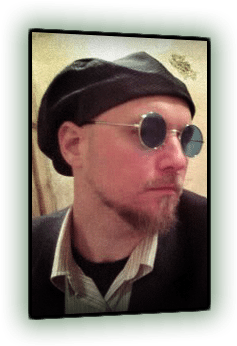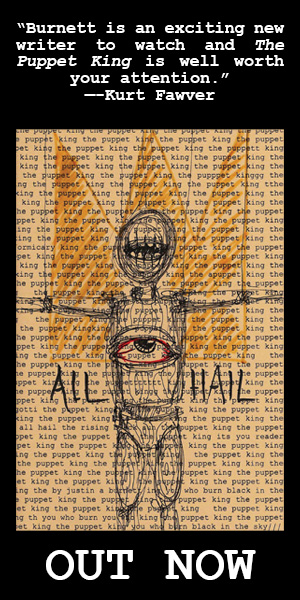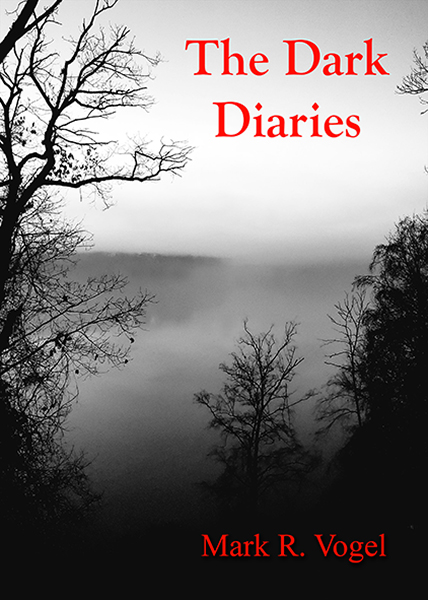Bryon Morrigan has a Masters Degree in History, a B.S. in Forensics, (Honors Program, Cum Laude), and is pursuing his Ph.D. He has worked many diverse jobs, including Private Investigator, Army Cryptanalyst, and even Elementary School Teacher.
He is also the author of Acheron which we reviewed recently.
1)Can you provide a brief summary of your novel Acheron?
In short, a US soldier in Iraq is captured by terrorists, but while languishing in his cell, the outside world descends into an apocalyptic nightmare. By the time he frees himself, there’s not much left of Basra but zombies and strange, Lovecraftian monsters.
2) What were your motivations to write Acheron and place it in a 1st person narrative?
To be honest, I was continuing the trend from THE DESERT, my first novel. I like first person, as I feel it helps you to get into the “head” of the protagonist.
3) Considering the overall plot, why did you choose to use the Middle East as a setting? Was this a metaphor or a form of symbolism?
I used the Middle East as a setting, because of the concept of “write what you know.” I know what it’s like to be in the military, and out in the desert. People tend to think a lot of it in regards to daytime, as this hot, bright place. But at night, it can be extraordinarily creepy…so I created a setting where it’s essentially, always night. I also got some inspiration from walking around in the dark with night-vision goggles on.
4) As this is your first foray into the zombie/apocalyptic genre, what made you look at this genre?
Technically, my first novel, THE DESERT (available from Permuted Press as an e-book) is kind of in the genre as well. It only has one zombie though, and is focused more on the supernatural. It also takes place in Iraq, and certain things that happen in THE DESERT create the scenario of ACHERON, though this is not outwardly acknowledged in the book. I’ve always liked the apocalyptic genre, ever since reading King’s THE STAND and ALAS, BABYLON, by Pat Frank while in middle school. The idea of “starting over” has always appealed to me.
5) When you sit down and write what is your perfect writing environment, Quiet, Music, a specific room in the house? What helps get you in the mood? Watching classic horror films or…?
I tend to listen to a few different CDs on repeat: Skinny Puppy’s TOO DARK PARK, the soundtracks to NIGHTBREED and ALIEN, that sort of thing.
6) What kind of research did you do to get the ambience of the story setting, the environment, incorporating mythology into the plot, attitudes of the characters, developing the characters specifically Captain Leathers and Colonel Anderson?
In addition to my military experience, I used a lot of satellite pictures of Basra, in order to keep within the realms of “reality.” As far as mythology, I have a master’s degree in classical history, and have studied it significantly. Leathers is loosely based on how I think I might have reacted to that kind of a situation. Some of his recollections are, in fact, things that happened to me. Anderson is very much based on a real person that I had the unfortunate indignity of knowing many years ago, placed into a command position in a “Blackwater-esque” defense contractor. And when I had read some articles about Blackwater’s founder and CEO having some crazy ideas about wanting to eliminate Muslims from Iraq, and establish some sort of “Christian Supremacist” post-apocalyptic utopia, I thought, “I think I’m gonna have to run with this one.” LOL.
7) Did you find it difficult find a get this published or locate a publisher?
Permuted Press picked it up fairly quickly. To be honest, as I was writing it, I kept thinking that Permuted was the publisher I wanted to pick it up…and that’s what ended up happening. A Hollywood director had already picked up the story, and wanted a screenplay, just a few days after I finished writing it. Unfortunately, it looks like that project is dead in the water, but you never know. The same director had approached me for THE DESERT shortly after it came out, and the screenplay for that movie has gone through many ups and downs. At one time, it was going to be one of those “SyFy Channel Original Movies.” I guess I should have put a giant octopus-shark-anaconda-piranha creature in it…
8) What advice can you impart to authors just starting out who want to break into the zombie/horror genre?
Read Stephen King’s “On Writing,” and make sure that you follow his instructions to the letter. Furthermore, do not fall into the black pit of self-publishing, nor become an annoyance by over-promoting yourself on the Internet, nor get waylaid by delusions of grandeur.
9) Who do you feel is directly responsible for your entry into the horror genre and specifically the inclusion of zombies into your work?
As far as the horror genre in general, I owe everything to King, Barker, and Lovecraft. As far as zombies, I would say that I am generally more influenced by zombies in film, rather than print. And while I do enjoy a good, modern zombies-as-virus romp, I lament the fact that so few people seem to want to take on the idea of zombies-as-supernatural, or zombies-as-unexplainable. Romero never explained where his zombies came from, and I dig that. My next book, FORTRESS, is a full-on, 100% zombie novel, about a group of historical-reenactors who are holed up in the impregnable 16th century fort located in St. Augustine, Florida. Cannons vs. zombies. 🙂
10) What are your favorite books and films within this genre?
My favorite zombie film is LA HORDE, or THE HORDE, a brutal French film. If you haven’t seen it…you really need to fix that. It’s amazing. As far as books, I’m a big fan of Kim Paffenroth’s stuff.
11) If you had to do it all over again, the writing, the publishing, etc, what would you do differently?
I’d start much earlier. I only started writing at age 30, just 7 years ago. Oh yeah, and I’d probably start writing screenplays about giant octopus-shark-anaconda-piranha creatures, as that appears to be in-demand these days. 🙂
You can follow Bryon’s work at www.bryonmorrigan.com





